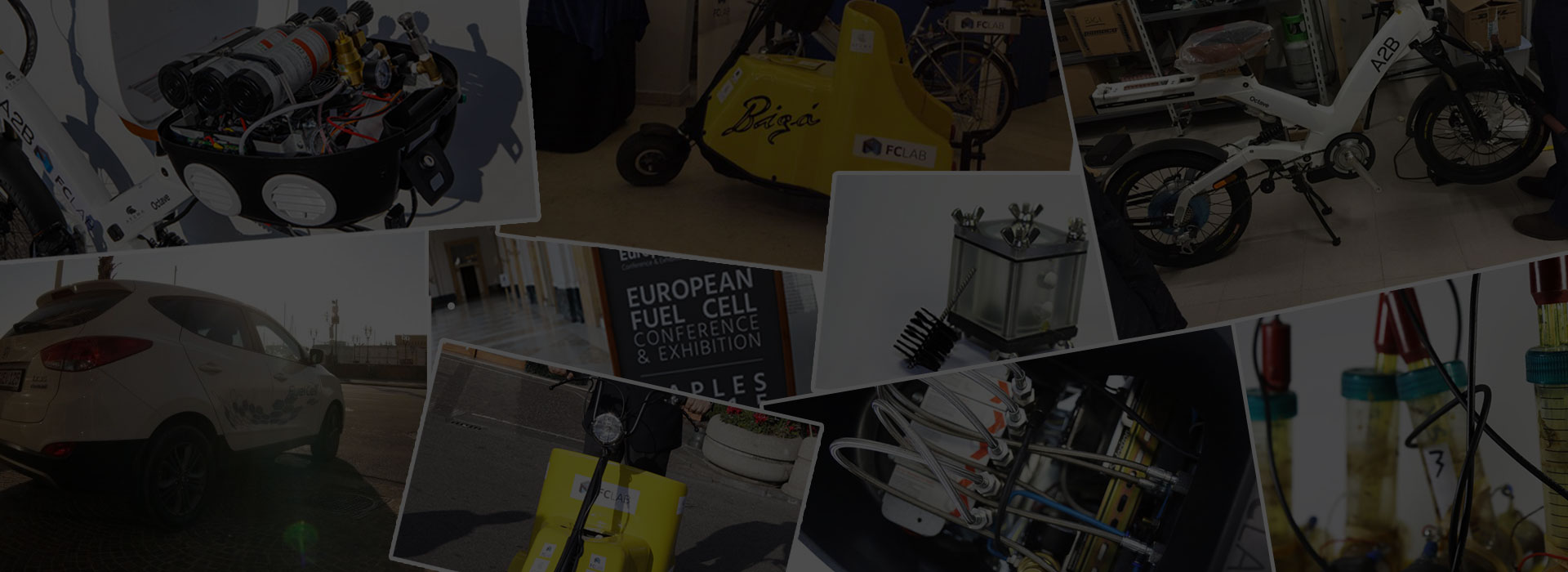01 May SMHyle
Sustainable Mobility with Hydrogen powered bicycle

SMHyle project is the demonstration of an innovative hydrogen-based sustainable mobility system. The main features/objectives of this system are:
i) reducing traffic congestion and air and noise pollution in urban areas by substituting new sustainable mobility solutions for motor vehicles for short and medium distance trips;
ii) meeting the growing demand for additional services of local public transport;
iii) improving the effectiveness of public transportation already available in the area.
In order to maximize its beneficial effects and demonstrate its vast potential, SMHyle will be implemented in areas of high artistic and cultural value with high population density in two different countries, Italy and Spain. Therefore, SMHyle does not content new research activity (i.e. basic research), but it combines together two environmentally-friendly technologies:
- Bicycles and tricycles which are non-polluting, practical, economical and low-maintenance vehicles, especially suitable in Seville (Spain) and in the Campania region (Italy) where the orography and climate are favorable to cycling throughout the entire year;
- Hydrogen, which is a clean energy carrier if produced from renewable energy sources.
Hydrogen is still far from large-scale commercial deployment and the few available facilities are spread. Nevertheless, it can be used, generated and stored with well-known and mature technologies already available in the market or in the pre-commercial phase (PEM fuel cells, solar photovoltaic generator, electrolyser and metal hydrides). The main objective of the SMHyle is thus to demonstrate the results that the researchers participating to the project have obtained in the last years in the area of hydrogen mobility. This will be done by applying the technology at a larger scale in three specific urban areas (Seville in Spain and Costiera Sorrentina in Italy).
As a result, SMHyle will provide the research team with guidelines for the implementation of a clean hydrogen-assisted mobility and a toolkit to assist key issues in the introduction of hydrogen bicycles and tricycles within their fleets as well as in the implementation of optimization measures to reduce the overall environmental impact due to transportation. Such demonstration will not be based on a single unit tested under controlled conditions (what would make this project more suitable for a standard H2020 research project) but, on the contrary, it will be implemented at a larger scale and with actual service conditions: free access by users, daily utilization and arbitrary working cycles. Moreover, the demonstration will be performed alongside standard bikesharing systems since these are available in the cities where the fleets of new hydrogen-assisted vehicles will be put in place (for instance, ca. 2600 public bicycles are available in Seville through www.sevici.es). These conventional systems will be used to benchmark the new technology.
Info
- Type of projects: Demonstration
- Timing: 5 years
- Budget: 5.391.114
Funding


Life 2015
Partner
- University of Naples Parthenope
- University of Tuscia
- University of Seville
- Atena scarl
- Bikelecing srl
Country
Italy – Spain
Address
Department of Engineering, University of Naples Parthenope



